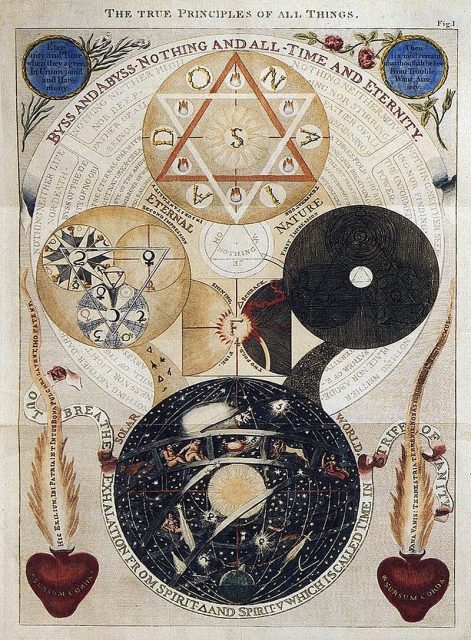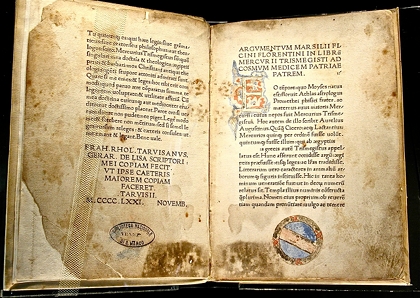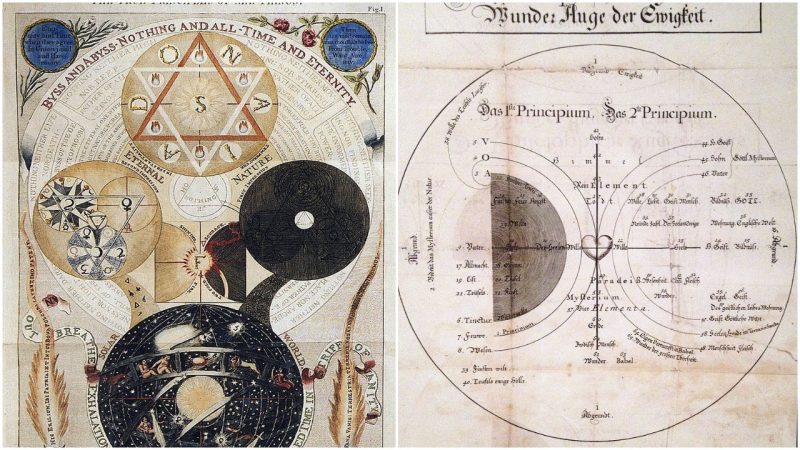Since December 2017 a large number of rare religious and occult books written before the 20th century have been submitted for a digitization process that will make them available for anyone to read.
The institution in charge of this delicate venture is the Netherland’s Ritman Library founded by Joost R. Ritman, an Amsterdam-based businessman, who, according to his biography, has a deep interest in spirituality.
Together with his wife, Rachel, they run the library filled with rare books on magic, religion, gnosticism, alchemy, and mysticism. The library was founded in 1984, and today it contains more than 20,000 titles.
The digitization process came after the initiative of Dan Brown, the best-selling author behind titles such as The Da Vinci Code, Angels & Demons, and Inferno. The writer, who himself has used the library for extensive research while working on his novels, decided to donate 300,000 Euros so that some of the rarest books in Ritman’s possession could be carefully scanned and put into digital format.

Apart from Brown, who is responsible for the bulk of the donation, the Dutch organization Prins Bernhard Cultuurfonds invested another 15,000 Euros to the project.
The intention is, certainly, to make literature that is usually kept hidden in archives more accessible. Among the titles that were chosen for digitization are works of well-known historical figures, such as the Italian scholar Giordano Bruno and Jakob Böhme, a German Christian mystic, but there are also a number of unattributed books written under various pseudonyms that define Renaissance-era occultism and spirituality.
The pivotal work that falls under this category is the Corpus Hermeticum, first published in 1472 by Marsilio Ficino, who translated, assembled, and edited the Egyptian-Greek wisdom texts from the 2nd century AD, which mostly contain philosophical observations about the cosmos, the mind, divinity, and nature, but also alchemy and astrology.
Due to the power of the Catholic Church in Italy during the period, the texts were in many cases perceived as heresy, but they managed to survive the days of Inquisition and serve as a testimony of an intellectually dynamic period in the history of mankind.

As for Bruno, the book that is soon to become available online is The Expulsion of the Triumphant Beast (Spaccio de la Bestia trionfante), first published in 1584. Giordano Bruno, who was a man ahead of his time, was burned at the stake for refusing to denounce his ideas of infinite space.
Böhme’s works, originally written in German, were translated into English during the 18th century and soon became very influential among the Protestant clergy, both in Britain and on the continent. Joost Ritman’s daughter, Esther, who currently works as the library’s director and librarian, expressed great interest in the forgotten works of Jakob Böhme, saying, “When I show this book in the library, it’s like traveling in an entirely new world.”

In an interview with Quartz regarding the new additions to the digital library, she said: “We can take everyone along the journey of this book digitally.”
Soon this will be the case for all of the 4,600 texts that were chosen to form the digital library program titled “Hermetically Open.” As of January 2018, 1,617 of the books have become part of the Ritman online catalog and are already available to the public.
Other particularly valuable texts include an early Quran printed in Arabic (1694), a copy of a first-edition Quran in Latin (1542-1543), a hand-colored version of the Bible (1568-1573), and the first printed version of the Tree of Life (1516), the Jewish holy texts representing the 10 virtues of God in Kabbalah.

As for Joost Ritman, it is as if his dreams have come true. His statement on the official website of The Ritman Library, also known as the Bibliotheca Philosophica Hermetica, outlines the purpose of existence of such an institution:
“It has always been my goal to connect this treasure house with the community at large and make the texts–the sources–available to a wide audience. From the moment the library opened its doors, it was not only a collection of historically important books, but primarily a living institute, and ‘hermetically open’ to all.”
